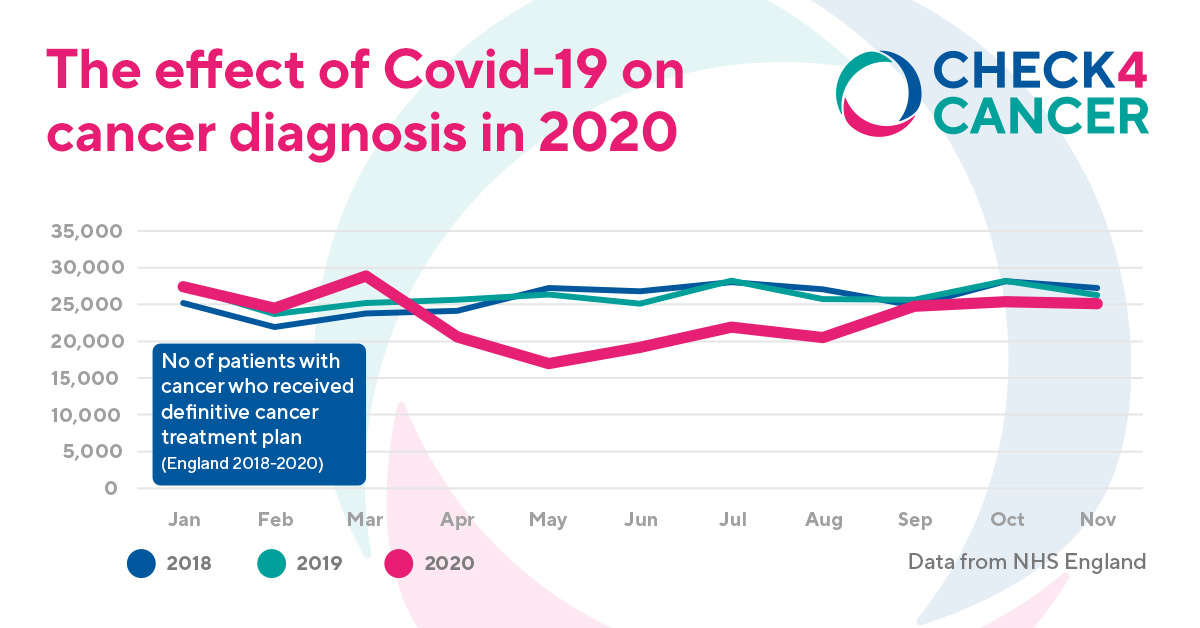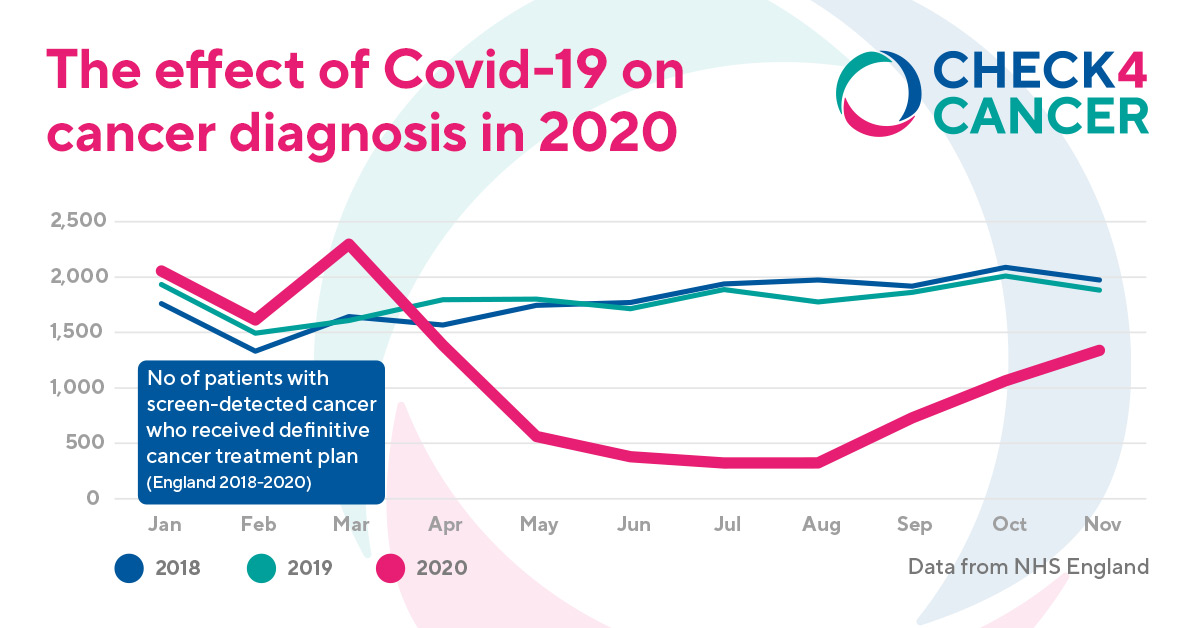By Professor Gordon Wishart, Chief Medical Officer at Check4Cancer & Visiting Professor of Cancer Surgery at Anglia Ruskin School of Medicine
- 1000 less cancer patients diagnosed every week from April to November 2020 compared to 2019
- NHS England data confirms 32,249 less cancer patients diagnosed in January-November 2020 compared to 2019 due to covid restrictions.
- Data also confirms 7,703 less patients (39.0%) in 2020 with a screen-detected cancer compared to 2019, due to suspension of screening services.
- Any delay on cancer diagnosis will have a devastating impact on these patients and their families, and reduce national cancer survival rates
It is well documented that delay in cancer diagnosis is part of the collateral damage caused by the Covid pandemic and subsequent lockdown restrictions. Such a delay could result in the cancer becoming more advanced, a patient having palliative rather than curative treatment and patients dying from cancer rather than being cured.
Latest figures from NHS England for January-November 2020 have confirmed that urgent cancer referrals were down 14.8% and urgent breast referrals were down 32.6% compared to January-November 2019. Cancer incidence rates for 2020 are unlikely to be released for several years so, are there any other data available now that can shed light on the number of missed cancers in 2020?
There are approximately 367,000 patients diagnosed with cancer each year in the UK, which is just over 30,000 a month or 1,000 a day. NHS England publishes data on many aspects of cancer waiting times and includes the number of patients who receive both a cancer diagnosis and treatment plan. This number can therefore be used as a surrogate for the numbers of cancer diagnosed, accepting that not all patients diagnosed with cancer will receive treatment.
Using data from NHS England, there were 255,225 patients who received a cancer diagnosis and treatment plan from January-November 2020 compared to the same time period in 2019 (287,474) and 2018 (284,385). Therefore, in January-November 2020 there were 32,249 less patients (11.2%) who were not diagnosed or unfit for cancer treatment compared to January-November 2019. From Figure 1 it can be seen that most of the reduction in patients receiving a definitive treatment plan occurred between April and September 2020, with an average of 1000 less patients diagnosed eery week from April to November 2020.
Figure 1

NHS England also publishes data on patients with screen-detected cancer who are subsequently treated and, there were 12,068 such patients in January to November 2020 compared to the same time period in 2019 (19,771) and 2018 (19,715). Therefore, in 2020 there were 7,703 less patients (39.0%) with a screen-detected cancer compared to 2019 and it is likely the vast majority of these patient were not invited for screening. From Figure 2 it can be seen that the reduction in patients receiving a definitive treatment plan started in April 2020 and it has yet to catch up with monthly figures for 2019 or 2018. It is likely that some of these patients will present at a later stage when they develop symptoms or have a deferred screening appointment.
Figure 2

In April 2020, Cancer Research UK estimated that 400 patients were not being diagnosed in the UK every week due to disruption of breast, bowel and cervical cancer screening services. That estimate is broadly in line with the figures for England presented here.
These data begin to shed light on the numbers of patients with screen-detected or symptomatic cancer who have not been screened, diagnosed or treated in 2020, with an overall reduction of at least 32,000 patients compared to 2019. This is likely to have had, or will have, a devastating effect on these patients and their families, and contribute to a reduction in national cancer survival rates that are already mediocre compared to many Western countries.
